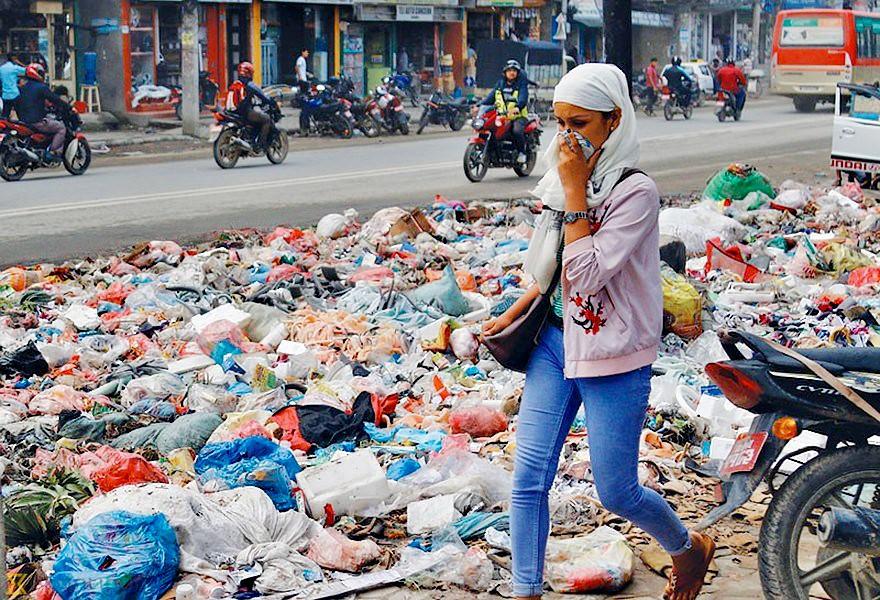Challenges of municipal solid waste management: Learning from post-crisis governance initiatives in South Asia

Looking at recent governance initiatives in three South Asian cities developed in the wake of natural or human-induced crises, this project focuses on how to render municipal solid waste management improvements politically feasible and socially acceptable.
About the project
Background
The South Asian region, home to nearly one quarter of the world’s population, is witnessing fast urban growth, economic development and growing consumerism resulting in rapidly increasing amounts of municipal solid waste (MSW) that are expected to nearly double between 2018 and 2050. At the same time, open dumping continues in many cities, garbage collection remains incomplete and processing facilities are deficient, leading to a wide range of local environmental problems, including air pollution from open burning of garbage, olfactory nuisances near and in residential neighborhoods, pollution and clogging of water bodies due to open dumping and littering, soil and groundwater contamination through leachates from landfills. The combined local impacts of inadequate municipal solid waste management (MSWM) render it a ‘cumulative’ global environmental issue due to the ubiquity of the problems they cause. Furthermore, greenhouse gas emissions from inadequate waste treatment have made MSWM a ‘systemic’ global environmental challenge.
Objectives
The overall aim of this project is to identify, analyse and promote the political and sociocultural processes that are necessary to enable sustainable MSWM systems that are based on participation and collaborations between local stakeholders and on shortened, circular waste chains. Endogenous MSWM governance initiatives in Thiruvananthapuram/India, Kathmandu/Nepal and Colombo/Sri Lanka that have emerged in the wake of natural or human-induced crises will be examined and evaluated in terms of their potential for extension to different geographical contexts and for scaling-up. Focus will be placed on South-South knowledge exchange as a potential alternative to externally promoted MSWM systems. In this way, the project aims to contribute to global sustainable development, with a focus on its social and environmental dimensions. The more specific objectives are to:
- Identify and analyse the institutional architecture of waste governance, the waste chain and related socially differentiated labor practices, and accompanying discourses on waste and waste-work in post-crises initiatives. Focus is put on the political and sociocultural dimensions at the household (including gender role), neighborhood and municipal levels, that enable sustainable MSWM systems.
- Evaluate the potential for scaling-up of endogenously emerged MSWM governance initiatives and their transferability to other locations.
- Promote sustainable MSWM systems through mutual learning (South-South exchanges), process documentation (video logs, etc.) and policy briefs to illustrate and inform about endogenously evolved, socio-culturally accepted and politically feasible MSWM systems.
Relevance
The ‘waste problem’ has become one of the most pressing social issues in South Asian cities, as it is closely linked to drinking water quality, sanitation and human health affecting the urban poor the most and implying spatial inequities and socio-environmental injustices. The proposed project is timely, as South Asian governments and civil-society organizations at different levels have start to pay primary attention to the problem of MSWM. Proper waste management is a key policy issue for municipalities, as they are in most cases responsible for solid waste management and spend as much as 20-50% of their budget on this task. The project will unveil participatory solid waste management systems that provide policymakers with alternatives to the commonly promoted MSWM blueprints. Bottom-up transformations through increased awareness and sustainable and socially just waste chain logistics are an option to create sustainable and more inclusive cities that are more oriented to the needs of poor people in the developing world.
Geographic scope
- India (Kerala)
- Sri Lanka
- Nepal
Project websit and link to P3
- Link to project website
- Link to project on SNSF research database P3
